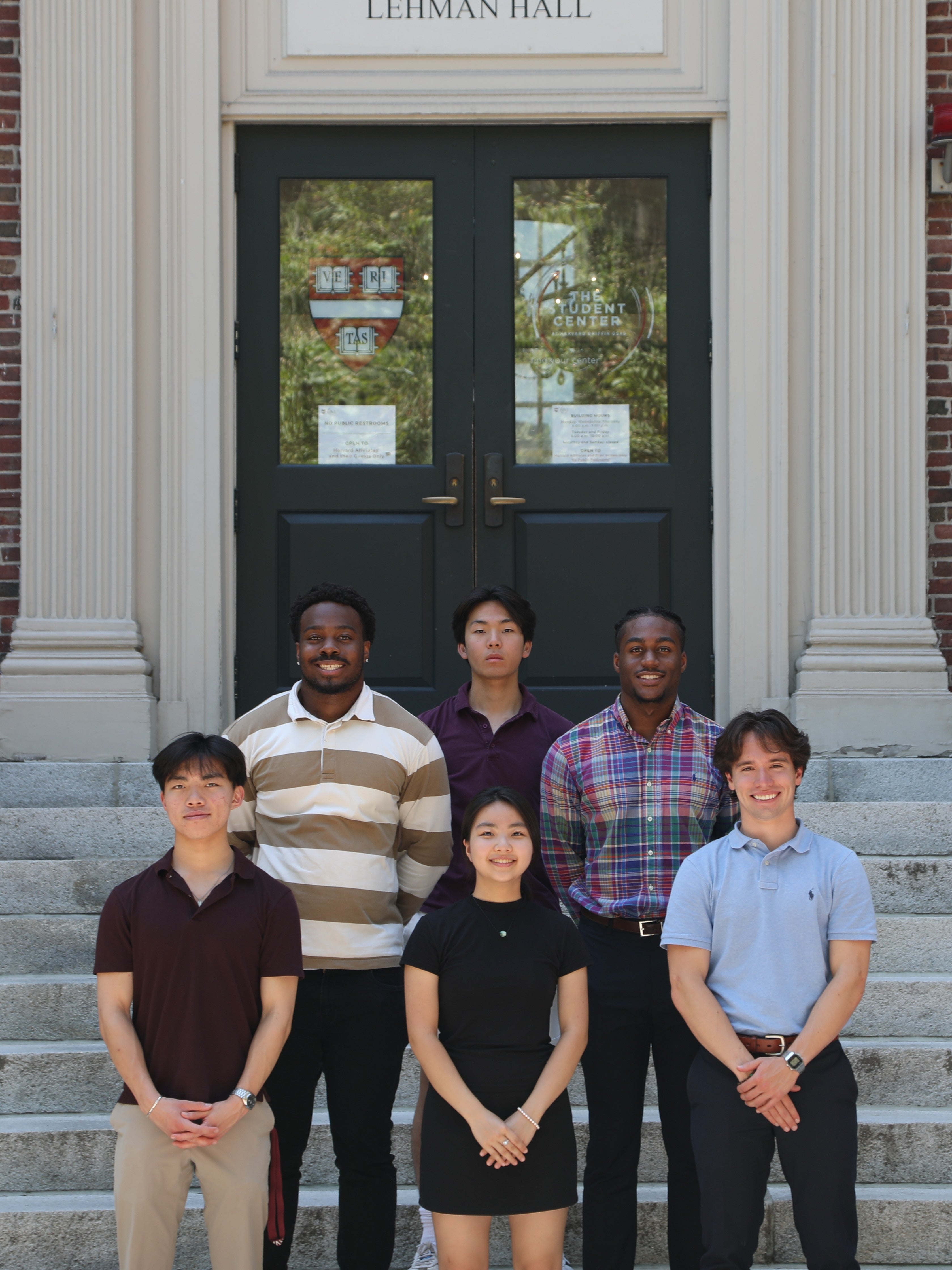By Rishaan Naik
Abstract
In this paper I will be critiquing the legal system and arguments made in its favor via a philosophical lens and to ponder “if it is truly human or does it dehumanize people living in the nation”. Exploring various dimensions of legal institution and its practices while raising arguments of various philosophers. My thesis statement is “law, social norms, stereotype and expectation has an inhuman effect on humanity and it causes damage to true human nature and degradation of man’s individual power and potential”
To support this claim will be looking at both the philosophical and psychological aspect, also exploring the works of Nietzsche to determine how human potential is being suppressed by the weak morality and morality of the masses (Schacht,2023). Exploring evidence from Marquis De Sade’s work to show how human nature is being suppressed by the hypocrisy of legal and social institutions (Klossowski, 1991)
Looking at the psychological effect of the legal suppression of emotion and finally critique the social contract theory by Thomas Hobbs (Boucher and Kelly,2003). Hypothetical arguments, anecdote and case studies from the past will be used as evidence to support this. Included interviews and cited psychological research papers.
Introduction
As man began civilization there was a requirement of a sets of rules, morals, principles and law to create order. We must note the importance of a critical analysis of any legal institution must ask the question “is law or social norms, stereotypes and social expectation truly human or does it dehumanizes people living by suppressing man’s true nature, inner emotions and thoughts”
This question has various perspective and I will not be affirming my position as universally true but will argue that legal system has dehumanized humans which also has caused a decay in our way of living, our moral and social views. My position in this argument is similar to that of Nietzsche(Schacth,2023), just like how Nietzsche believed Christianity imposed a slave morality on humanity in his time, in the modern time some legal and social institutions impose a similarly weak and slave like legislation and social norms on the people. Purpose of this work a re-evaluation of all the legal and social principles, and also to encourage people to question assumptions of truth. The method used to explore various literary works and analyze their arguments some of them supported by scientific facts.
Literature Review
There are various thinkers in world history who have influenced the way of thinking and writing. We will start with the most subversive thinker Marquis de Sade, infamously known as the father of sadism. His works have not been included in mainstream literature or philosophy as it contains details which even by modern standards are quite radicle.
His ideas of sexuality, sexual freedom and his exploration of human freedom to do whatever one wants to maximize one’s pleasure and reduce pain is wildly subversive. His works has a background that will expose the hypocrisy and inhuman effects of any legal, moral or social system (Klossowski, 1991).
In his book the dialogue between a priest and a dying man Sade explains that the dying man regrets conforming to religious norms and legal rules at some points in his life and he states that nature has created him to fulfill his desires which is his sole purpose and this often leads to go against legal institution but claims that this is man true nature. Sade argues that some of man’s natural desires and instincts are repressed or considered illegal in a legal system (De Sade, 2016).
We explore another work like Justine, we find that conforming to social, moral and legal institutions not only suppresses our true human nature but makes us slaves of legal institution and causes problems. In this a girl Justine follows the social and legal rules but ends up in trouble and suffers throughout her life (De Sade, 1971) while in another work Juillet who is Justine’s sister is the opposite of her but end up successful and happy by following her true human nature (De Sade, 2007).
By combining ideas and works of Sade, Nietzsche’s Thus Spake Zarathustra (Nietzsche, 1972) and Genealogy of morality (Schacth,2023) will be exploring how law also suppress man natural drive to power and how law brings down hero or great men who have to go against the status quo.
Body
Philosophical Analysis of Legal and social suppression of Human Nature
We will be exploring Marquis De Sade and Nietzsche arguments, also drawing on how conforming to legal institutions leads to suppression of human potential and nature.
In my view De Sade’s explanation of following one’s passions and desires seems selfish, as this explanation suggests that man is naturally selfish and self-serving (Klossowski, 1991). In De Sade’s Novel Juliette, a girl named Juliette followed her passion committing crimes in the due course to fulfill her desires, she ended up successful (De Sade, 2007). Good philosophical evidence of this is humans and animals or all living creature are naturally selfish and whatever they do is for their own self-interest and no one is altruistic. Let’s expand on this view, man does not care about the animal that will die to satisfy his or her hunger. We see such patterns everywhere and a good justification is that this is who we naturally are.
Now if we expand this in a social or legal context, we find that society compels us to abandon our selfish desires and work for the good of the state than ourselves. From this reasoning we find that law and social norms demands us to suppress our natural drive for self-interest which is an important part of humanity. If self-interest is suppressed then a portion of our humanity is also suppressed.
I asked my father about his experience of conforming to social expectation during his time and what he felt by following it. His reply was he was passionate speaker and wanted to study Law but it was the social norm/stereotype of that time to become a doctor or engineer in India that he perused engineering. He is happy and contented but feels, he would have been happier if he had not conformed to social stereotype or expectation of that time and followed his passion. We often find this a recurring theme in De Sade and his philosophical successors that conforming to the social and legal institution causes us to lose our humanity, freedom and potentiality for greatness.
Law however flexible or democratic imposes the power of the herd over the Individuals and everyone often has to follow the herd as mentioned by Nietzsche, herd causes a degradation in human potential as they support a weak morality not a strong morality which is necessary to bring humans to their true potential (May, 2011). Socrates loved and revered as one of the greatest philosophers in the western cannon disregarded and challenged the social norms and legal institution finally died at the hands of law (Stone, 2015).
Nietzsche’s idea that the herd tend to bring down great men (Leiter, 2014), I have extended Nietzsche argument to encompass law as part of this herd morality which prevents great men to raise. If we combine Nietzsche idea of herd with De Sade ideas of transgression, we can come to holistic conclusion on one premise of my overall argument that law suppresses human natural self.
Psychological Analysis of Legal and social suppression of Human Nature
Sigmund Freud father of modern Psychology was inspired by Marquis De Sade and Nietzsche works; he added psychological dimension to their philosophical work. I will be expanding on his theories and assumptions.
Let’s start by asserting that some psychological illness and problems are caused by repression of our emotions or feelings. Freud has a critical view of law and social systems effect on human psychology I will expand on his work to encompass both the philosophical and psychological aspect of his work, there are many cases identified to support Freud’s works as well as my claim.
In his book Interpreting Civilization and Its Discontents, we find that the individuals in any society or legal institution face problems about expressing their feelings and emotions. The difficulties that people face in expressing their emotions, feelings, sexual desires and any other hidden feelings is because of the fear of hostility by the society or retribution by legal institution (Freud, 1994), this is psychological dehumazing as such repressed emotion when not expressed can lead to sever psychological problems.
Let’s do a case study of some writers like Charles Baudelaire who explored various themes in his writing which was considered as subversive. In his book flowers of evil certain poems were banned (Post, 1998) but what I noticed in his life is that he was consuming drugs and had financial struggles. His mother remarried after his father died which Baudelaire did not support (Baudelaire, 2021) his poems were an avenue to express these supressed emotion which he struggled to deal with, by banning some of his poems the avenue to express his inner thought was supressed.
The banning of poem is also an example of what I prefer to call Legal Sadism which is an expansion of Freud’s idea that legal systems supress our emotion and inner feeling. Legal Sadism means law and social norms take pleasure in disciplining the individual’s inner emotions for the sake of order and conformity (discipline in this context means suppression of human nature and emotion), this causes immense phycological problems to individuals (Freud, 1994).
Legal sadism for the sake of conformity (which is inherently unnatural) sacrifices the individuals psychological health, especially those of individuals who have the potential of being great. This expands to physiatry which exists, but many people out of fear of social norms prefer not to talk about their inner thoughts and emotions in open. An article published by the national council on ageing quoted Wulf Ressler a researcher and psychologist “there is no country, society, or culture where people with mental illness have the same societal value as people without mental illness”. The data in this article also states that 83% of the people who can benefit from psychological treatment do not seek it (Mental Health Stigma: Changing the Conversation 2025). This highlights the hostile reaction of societal norms to mental illness caused by suppression of human emotion and inner thoughts.
Counter Argument
I will tackle the claim of Tomas Hobbs in the Levithan(Boucher and Kelly,2003) as it calls for a formation of legal and social system which has a strong counter argument to my claim. Hobbs claims that humans in the original state of nature were in constant conflict but gave up their freedom and some of their power to live in a society which provides safety, security etc and it will benefit the people to follow the law (Boucher and Kelly,2003). I find this contradictory because humans in a society that Hobbs claims have given up freedom, still desires freedom and power.
Humans are chaotic and unpredictable being and can’t be controlled we see this happening everywhere. Classic case of International Law being created for order and harmony, ideally world conflict and war should have been eliminated but it has not because humans are at the core unpredictable and chaotic. To subjugate ourself to a legal system where is tries to create order is foolish and can only work for some time. This is a fact I feel philosophers often miss out, when someone tries to justify a legal or social system they forget that they are trying to crate order out of creatures who are naturally unpredictable and are drawn to disorder which is philosophically contradictor.
Have discussed how human emotional potential and true nature is supressed. I will introduce the concept of suppression of another human drive, the drive for violence and this is one of the many drives which I believe makes humans unpredictable or chaotic. Introduction of this drive is to expand on the argument made in the previous paragraph.
We still see that humans have not lost their natural drive for violence which makes law more unsuited for man, any legal system tries to subdue natural drive for violence but it does not mean violence does not exist. Even now in a civilised society movies which show gruesome act of violence are most liked by the large public. For example Godfather had a lot of violent imagery and in India movies like KGF also has seen considerably share of violence. I see this as a recurring theme where movies with violence and action have great popularity. The reason being violent acts are illegal and supress our drive for violence but these movies help people to discharge this supressed drive. This shows how legal systems often supress some of man’s natural drives which eventually makes us inhuman.
Let’s take a hypothetical situation where every individual has given up their power and formed a society where women have limited rights and let’s say that men and women of that time have mutually agreed to this, but some generations later women demand more rights than what they were given and demand more freedom should we not give it to them by stating that their ancestors gave up their freedom to live in protection of the state or give them the freedom they require but contradicts the very idea of giving up their freedom for the society in the first place.
Another criticism is that in such a system freedom and liberty will be curtailed as no one after giving up their freedom should question the state. Movements like feminism or civil rights should not be entertained if we take Tomas Hobbs position, but we have given importance to these movement because of the positive changes these movements brought to the world.
Conclusion
Humans are self-serving creature who are often sadistic and this is man’s natural drive. In my view Legal system make humans suppress their natural drive to conform to legal and social norms, one of these natural drives is will to power (Nietzsche, 1913) where one has to strive for greatness which requires the individual not to conform to social or legal institutions. If we choose to conform, we give up our natural self or humanity and we give up our potential for greatness. I affirm Freud stance and adding to it my own opinions that suppression of human emotion and inner thoughts often lead to severe psychological illness (Freud, 1994).
Individual in fear of hostile reaction of social norms prefer not to seek help or voice out their thoughts, such a build-up of supressed emotions has a dehuamzing effect. If we procced from this assumption we find that law often takes joy in supressing our thoughts and emotion for the sake of conformity which is sadistic. By countering theories like the social contract theory of Tomas hobbs (Boucher and Kelly,2003) and reaffirming that law suppresses human nature and desires, we ultimately loss our humanity and freedom for something unnatural like order and stability.
I will conclude my thesis statement “law, social norms, stereotype and expectation has an inhuman effect on humanity and it causes severe damage to true human nature and causes a degradation of man individual power, potential and emotions”
Bibliography
-
Baudelaire, C. (2021). Charles Baudelaire: His Life. Crescent Moon Publishing.
-
Boucher, D., & Kelly, P. (2003a). The Social Contract from Hobbes to Rawls. Routledge.
-
De Sade, M. (1971a). Justine, Philosophy in the Bedroom, and other writings. http://ci.nii.ac.jp/ncid/BA82780335
-
De Sade, M. (2007a). Juliette. Arrow.
-
De Sade, M. (2016a). Dialogue between a priest and a dying man. BoD – Books on Demand.
-
Freud, S. (1994a). Civilization and its discontents. Courier Dover Publications.
-
Klossowski, P. (1991a). Sade my neighbor. Northwestern University Press
-
Leiter, B. (2014a). Nietzsche on morality. Routledge.
-
May, S. (2011a). Nietzsche’s on the Genealogy of Morality: A Critical Guide. Cambridge University Press.
-
Mental Health Stigma: Changing the Conversation 2025
-
Nietzsche, F. W. (1913a). The will to power: An Attempted Transvaluation of All Values.
-
Nietzsche, F. W. (1972a). Thus spoke Zarathustra: A Book for Everyone and No One.
-
Post, R. (1998a). Censorship and silencing: Practices of Cultural Regulation. Getty Publications.
-
Schacht, R. (2023a). Nietzsche, genealogy, morality: Essays on Nietzsche’s On the Genealogy of Morals. Univ of California Press.
-
Stone, I. (2015a). The trial of Socrates. Bloomsbury Publishing





